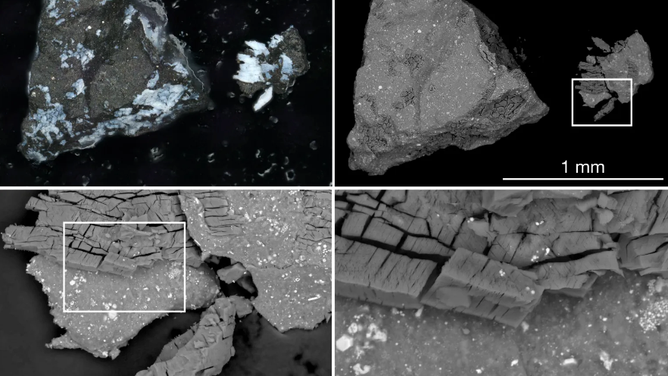The initial examination of the asteroid Bennu sample brought back by NASA’s OSIRIS-REx mission has revealed unexpected findings about the early solar system and the possible beginnings of life on our planet.
The 121.6-gram sample, gathered in 2020 and returned to Earth in 2023, has provided a wealth of valuable data for researchers.
The OSIRIS-REx Sample Analysis Team determined that Bennu’s particles contain high levels of carbon, nitrogen, and organic compounds, which are crucial building blocks for life. The sample is primarily composed of clay minerals, specifically serpentine, resembling the rocks found in mid-ocean ridges on Earth.
One of the most fascinating discoveries is the existence of magnesium-sodium phosphate in the sample. This mineral, which was not identified by the spacecraft’s remote sensing while at Bennu, indicates that the asteroid might have originated from a small, primitive ocean world.

The purity and grain size of the phosphate in the meteorite sample from Bennu are unparalleled, distinguishing it from similar findings in other asteroid samples. This unique composition provides valuable insights into the early solar system and the potential for a watery past on the asteroid. The unaltered material closely resembles that of the Sun, offering a glimpse into the primitive nature of our solar system over 4.5 billion years ago. As the analysis of the Bennu sample continues, scientists anticipate uncovering more secrets about the origins of our solar system and the potential emergence of life on Earth.

